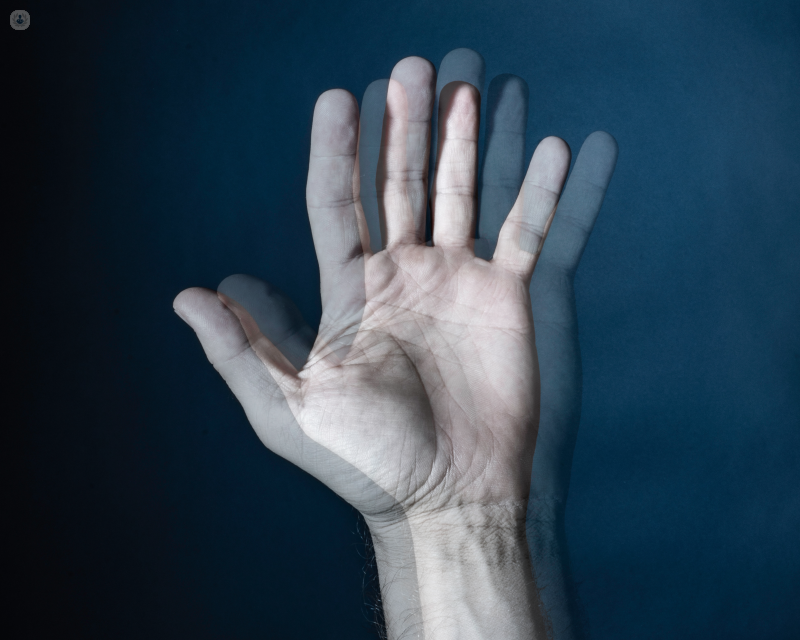Diplopia: why am I seeing double?
Autore:Diplopia: why am I seeing double?
Temporary episodes of double vision can be a very disorientating and uncomfortable experience. The condition, known as diplopia, can affect your movement, balance and reading ability. We sat with Miss Stephanie West, an expert consultant ophthalmologist practising in Southampton, who outlined exactly what diplopia is, the causes of it and what tests she and her team typically perform to diagnose this condition.

What is diplopia?
Diplopia is the medical term for double vision. When a person is looking at an object, instead of just seeing one object, they see two. For example, if they're reading a book, they may see two lines of writing or, similarly, if they look at a plane in the sky, they may see two planes.
These images can appear side by side, one above the other or twisted where one image is tilted compared to the other one.
You won’t necessarily have double vision everywhere you look, meaning you may only experience it if you look over to the one side or you're looking at things close-up.
What causes double vision that comes and goes?
Intermittent or temporary double vision can happen when you're very tired, under the weather or consumed alcohol. It's not normally a sign of something significant but is usually due to an underlying misalignment between your eyes. In normal circumstances, your brain can control and fuse the images.
Some people can be more prone to this type of double vision. For example, if you wore glasses or had a squint eye when you were younger, you may find that you get double vision as you get older and your glasses prescription changes. If you are short-sighted, you may also start to notice double vision when you are reading or looking at the computer.
If you’ve never had double vision in these circumstances before or it's becoming more frequent, you should have an assessment to ensure there isn't any further underlying cause. Some neurological conditions, such as myasthenia, can cause double vision which gets worse during the day as you get increasingly tired.
What’s the difference between monocular and binocular diplopia?
Binocular diplopia is when you have a double vision with both eyes open, but if you close one eye you only have a single vision. This is due to a misalignment between the two eyes and the causes of this can be a problem with the eye muscles themselves. This occurs in patients who have a thyroid eye disease or can simply be a problem with the control of the eye muscles if you've had a stroke or an aneurysm. If you've got a neurological condition, such as myasthenia, this can affect your nerve control of your eye muscles too and cause binocular double vision.
Monocular double vision occurs when one eye is covered and you still see two images. Normally though, this is more of a ghosting or shadow of the image and suggests a problem with the eye itself. If you have dry eyes affecting the front surface of the eye, developed some cataract or there are changes in your retina, it can cause a monocular double vision. All of these scenarios need investigating.
How does double vision affect people?
Double vision may not always be present and can be intermittent: only occurring at certain times of the day or only in certain directions. Obviously, this can be very disorientating and cause problems with trying to walk, especially down steps. It can come on gradually or happen quite suddenly, which can make it very difficult for the person to carry out their day-to-day activities.
If you do have double vision, it is important not to go behind the wheel and you should tell the DVLA as it can affect your ability to drive.
How is double vision diagnosed?
When a person or child comes to see me with double vision, they are also assessed by an orthoptist as well as myself. This is a professional I work with who is trained at measuring and looking specifically at eye movements. The specialist will assess your vision with or without glasses if you wear them so you must bring them with you.
They will look at how your eyes move and how your eye muscles are working and if there is any misalignment between the eyes. This is measured using prisms which are wedge-shaped pieces of glass, of different thicknesses, which bend the light. These devices enable us to measure the angle between your eyes. Other relevant tests may look at your 3D vision to see if you use both eyes together.
Once I have the orthoptist's report, I will review this with you and go through the history of your symptoms and any other relevant eye problems or medical history that you have. I will then perform a structural assessment of your eye where I look at your eye using a slit lamp. This is a large big microscope that enables us to make sure that your eye is healthy and that there's no other significant cause. This may involve dilating your pupil to get a good look inside the eye and, if necessary, performing a refraction exam where check your glass’s prescription.
If you believe you are suffering from any of the symptoms mentioned in this article, visit Miss Stephanie West’s Top Doctors profile and check her availability.


